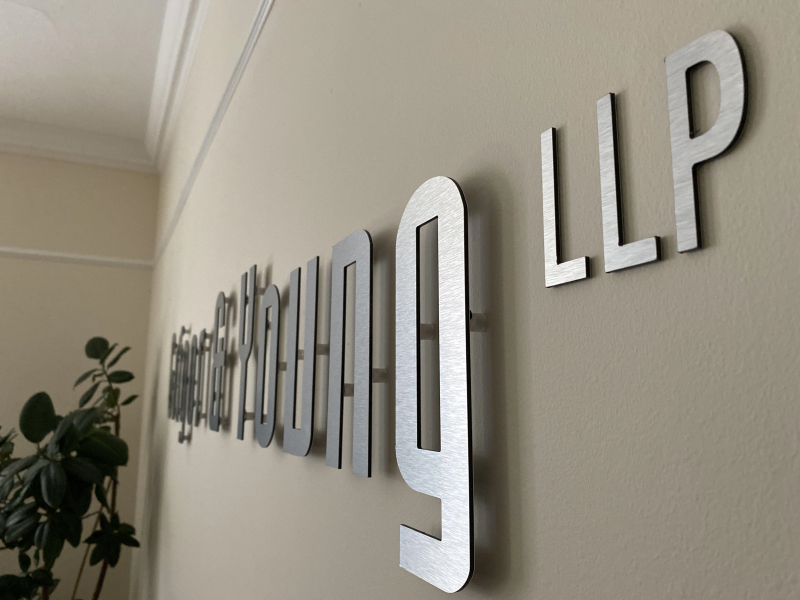Confidentiality in relation to Wills
Solicitors in Scotland – and elsewhere – owe a duty of confidentiality to all clients.
After the client dies, the duty continues. It will transfer to the personal representatives of the deceased. They will be the Executors appointed by the deceased’s Will or by the Court if a person has died without a Will.
This duty of confidentiality can have unfortunate consequences in terms of making solicitors appear “unhelpful” in certain circumstances.
If your relative is in the final stages of life, you may reasonably want to know whether a particular solicitor holds a Will for them and perhaps details of your relative’s funeral wishes.

If you contact the solicitor’s firm before your relative has died…
…you may encounter what appears to be a wall of silence. The solicitor cannot just not confirm whether they hold a Will for your relative; they cannot even confirm that your relative is a client of the firm.
If you contact the solicitor’s firm after your relative has died…
…the extent to which you will be able to obtain information depends, firstly, on whether we hold a Will for them or not.
If we do not hold a Will, we can tell you that.
If we do hold a Will, whether we can tell you anything will depend on whether you are an executor on the Will. We need to check our records before we know this, so it will usually mean someone has to get back to you.
If you are an executor appointed by the Will, you are entitled to see the Will.
If you are not an executor in terms of the Will, we probably cannot tell you anything. An exception to this is where Grigor & Young Trustees Limited are appointed as the sole executor. In that case, we have the power to disclose information and will try to be as helpful as possible.
The duty of confidentiality can throw up some challenging practical scenarios.
Take this hypothetical – though realistic – example.
A lady comes in to see us in Forres and tells us that her brother has died. He was in his early 60s. There are apparently no other siblings and she says that the deceased had no children.
She understands we hold her brother’s Will.
We check and find we do hold his Will.
The Will appoints his sister’s 2 daughters (his nieces) as his Executors and they are also the only beneficiaries of the Will. The sister is not mentioned in the Will (and she did not necessarily expect to be, either).
Unfortunately, we cannot tell the sister anything in this situation.
It is awkward. All we can do is try to contact the daughters via their addresses as they appear in the Will.
Does this make any sense?
You can attempt to justify it based on things like “family dynamics” – e.g. we have no idea at this stage how well the mother gets on with her daughters. Or whether there are other unmentioned siblings of the deceased or of the daughters. But those would be rather poor excuses and perhaps quite inflammatory.
Fundamentally, it’s an important time to stick by the wishes of the deceased.
Presumably, he has carefully chosen his beneficiaries and executors and we need to honour that by making sure the most important person (in fact, the executor or executors) is notified by us first of their involvement. They may not know of their appointment yet. There is no duty on a person making a Will to tell their executor that they are appointing them (unlike the position with an attorney under a power of attorney, who must confirm their agreement to act as attorney by signing a consent form).
The “rules” can be irritating and sometimes upsetting to next-of-kin involved but they provide a hierarchy in terms of which information can be given out. There are many situations in which we wish particular people to have priority in hearing important information or where we have ourselves felt irritated that another “less deserving” person got the details before we did.
The rules have the benefit of making it clear “who should hear first”, even if that does not always seem practically or morally logical.
How we can help
We hope this article has done something to explain how and why solicitors are restricted in the information they can give out about clients to third parties. Sometimes this may appear at best unhelpful and at worst obstructive but we hope you can see that there are good reasons why the duty of client confidentiality exists. If you could not trust your solicitor to safeguard your sensitive personal information, far fewer people would make a Will for fear that their wishes could be made known to “anyone”.
If you have any questions about any issue arising from this article or regarding our Wills services in general, please do not hesitate to contact us. You can phone us on 01343 544077 or send us a Free Online Enquiry via this website. All initial enquiries are free of charge and without any obligation to take matters further. We are here to help you.
We’re always appreciative of questions because they allow us to consider adding to the information on this website – hopefully for everyone’s benefit. Please do get in touch if you have any supplementary or related questions based on this article.


 Housing market boom in Moray sees move to quieter conditions
Housing market boom in Moray sees move to quieter conditions